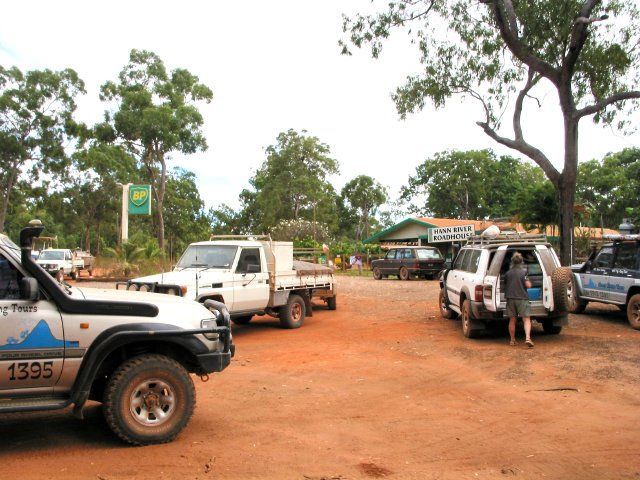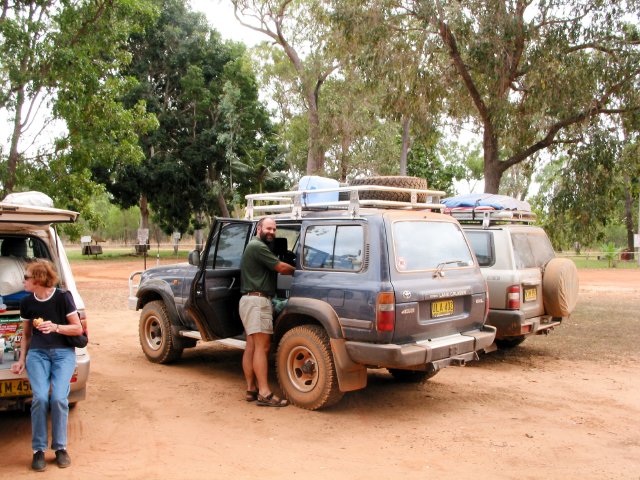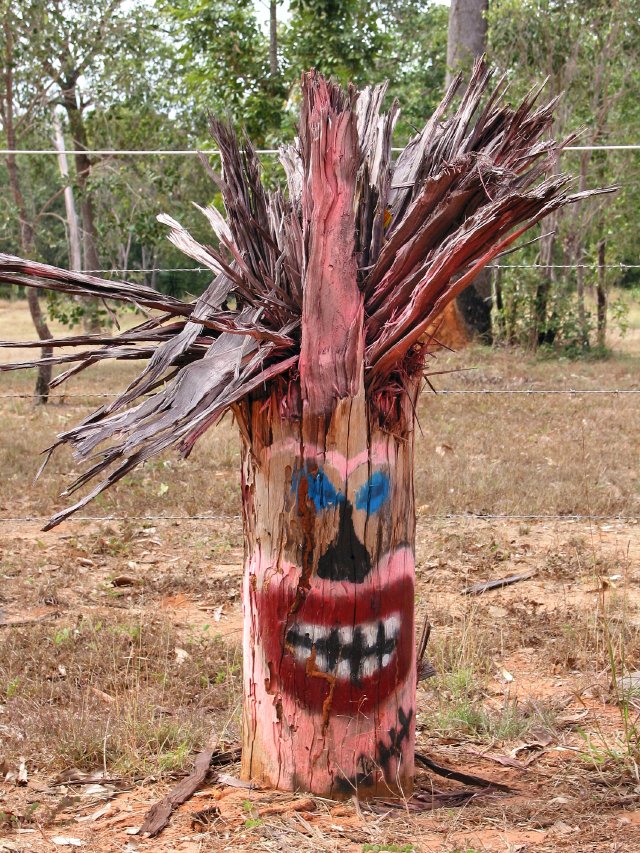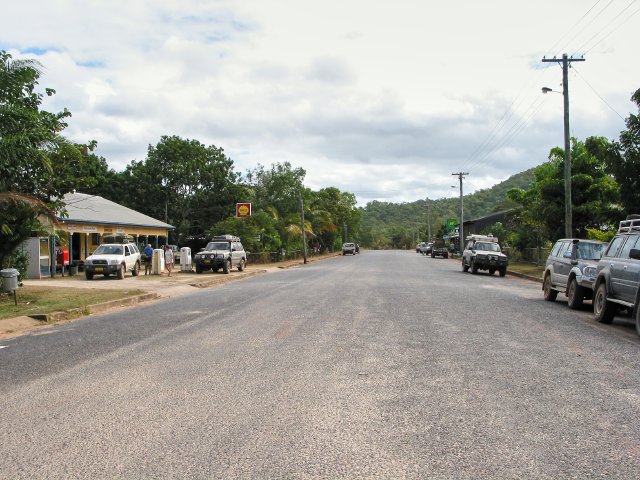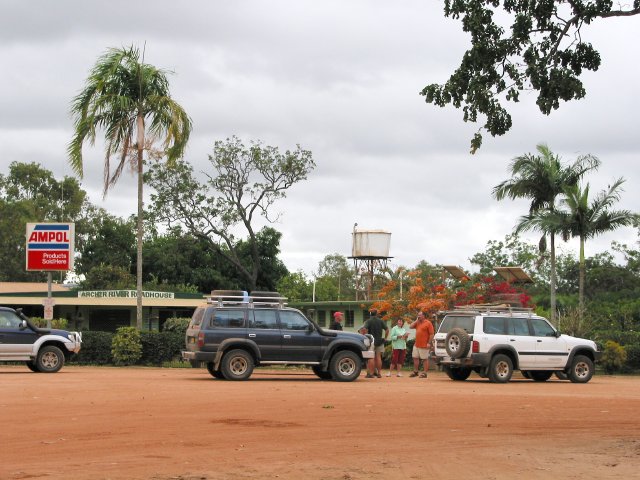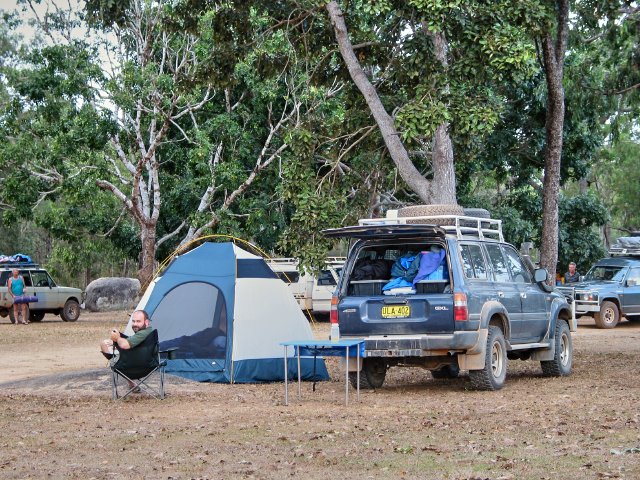Jowalbinna to Archer River Roadhouse, Queensland
We leave Jowalbinna Bush Camp and head north for several hours to Archer River Roadhouse, about halfway up the Cape York Peninsula. The landscape changes little, and there aren't many sights--the most exciting happening today was seeing an old woman with a cask of Moselle (in other words, with a cardboard box of cheap wine) in Coen.
Last night, we were woken at 4:30am by the sound of a dingo howling in the campsite. True dingoes can't bark, they just howl, though they don't sound like coyotes: the sound is deeper and more sonorous, without the yipping that coyotes do at the start. Our trusty guide DB got out in his skivvies and shooed him away--he was after the food crumbs on the barbeque.
The kookaburras woke us up again with their laughter at 6:15, about half an hour before sunrise, and we decided to get up and pack the tent. Then we were on the road by 8, stopping briefly when we picked up the main road, which was in surprisingly good condition all the way to the morning tea stop at the Hann River Roadhouse at 11. The only tricky bits on the road were some of the dips, which were bumpy on the bottom with water sometimes, and some of the slippery corrugated curves. Mostly, though, the road had few to no corrugations.
After the Hann River Roadhouse, the landscape changed slightly as the road went up a bit of a hill then ran through some higher country. Being a bit higher up didn't help with the scenery, though: it was still an open eucalypt woodland, occasionally with melaleucas dominating. You really couldn't see out more than 200 meters from the road, which bobbed up and down through hilly country. Sometimes we'd see a whole mess of termite mounds of various flavors: some were just a single big blob, while others were fluted and still others were thin wedges had serrated crests. Those were made by magnetic termites. They orient their mounds north-south to regulate the temperature inside. I suspect they don't use iron in their bodies to guide their building efforts (what use would that serve a wood or grass eating termite?), but rather just build on the north edge when it's cool, so they keep themselves warm, and on the south edge when it's hot, so as not to overheat.
We made it into Coen about 2 1/2 hours later, as my eyes were glazing over slightly from staring at the road surface as the dull eucalypt woodland rolled past. Coen's a small dusty town, with some small government administration buildings. There were plenty of government posters around town that indicated it wasn't quite a healthy place to live: all were small little A4 sized papers saying things like domestic violence can be stopped, or adverts for courses on how to manage money better so "you have enough to buy food for your children at the end of the week". Coen also provided us with our most exciting thing of the day: we watched an old woman and presumably her daughter carry 4 liter casks of 'Moselle' white wine around: we saw them as we ate lunch in the center of town, then again on the north edge of town as we drove out half an hour later. She really didn't move very fast: Coen is a very small settlement!
From there, the road surprisingly stayed paved for a good 20km to the Coen airfield, and a quarantine inspection station where we picked up an info pack exhorting us not to carry bananas, mangoes, or sugar cane on our way back south. Then another 40 minutes or so and we were at the Archer River Roadhouse, our campground for the night--a pleasant campground, some cold beer, and a Archer Burger sound really good right now!
Weird Wildlife Sighting
Apart from the dingo (not really a 'sighting'), a not-particularly-interesting sighting of a macropod crossing the road in front of us. It was reddish, medium sized, and hopped with a bent over gait. The underside appeared white, and there wasn't any tail markings (like stripes or a dark tip).
